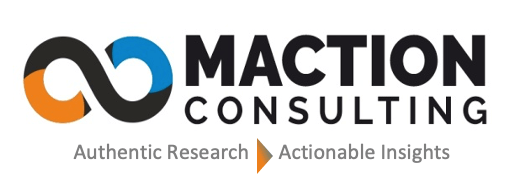Behavioral economics is a relatively new field of study that combines insights from psychology and economics to better understand how people make decisions. It challenges the traditional economic assumption that people are rational and self-interested by demonstrating that our choices are often influenced by a variety of cognitive biases and heuristics.
In this blog post, we will explore some of the key concepts in behavioral economics and how they can help us understand why consumers sometimes make irrational choices. We will also discuss two case studies that illustrate these concepts in action.
What is Behavioral Economics?
Behavioral economics is a field of study that combines insights from psychology and make decisions. It challenges the traditional economic assumption that people are rational and self-interested by demonstrating that our choices are often influenced by a variety of cognitive biases and heuristics.
Some of the key concepts in behavioral economics include:
- Cognitive biases: These are systematic errors in thinking that can lead to irrational decision-making. Some common cognitive biases include the availability bias, the anchoring bias, and the confirmation bias.
- Heuristics: These are mental shortcuts that we use to make decisions quickly and efficiently. While heuristics can be helpful, they can also lead to irrational choices.
- Loss aversion: This is the tendency to prefer avoiding losses to acquiring gains. For example, people are often more reluctant to sell a losing stock than to sell a winning stock.
- Framing effect: This is the way in which information is presented can influence our choices. For example, people are more likely to choose an option that is framed as a gain than one that is framed as a loss.
- Social proof: This is the tendency to conform to the behavior of others. For example, people are more likely to buy a product if they see that it is popular with other people.
Why do Consumers Make Irrational Choices?
There are a number of reasons why consumers may make irrational choices. Some of the most common reasons include:
- Cognitive limitations: We have limited cognitive abilities, and this can lead us to make mistakes in our decision-making.
- Emotional factors: Our emotions can sometimes cloud our judgment and lead us to make irrational choices.
- Social influences: We are often influenced by the behavior of other people, and this can lead us to make irrational choices.
Case Study 1: The Endowment Effect
The endowment effect is the tendency to overvalue items that we own. This bias is thought to be due to the fact that we form emotional attachments to our possessions.
A classic experiment to demonstrate the endowment effect involves giving people a mug and then asking them how much they would be willing to sell it for. People who have been given the mug typically overvalue it, demanding a higher price than they would be willing to pay for it if they didn’t already own it.
Case Study 2: The Framing Effect
The framing effect is the way in which information is presented can influence our choices. For example, people are more likely to choose an option that is framed as a gain than one that is framed as a loss.
A classic experiment to demonstrate the framing effect involves asking people to choose between two medical treatments. One treatment is described as having a 90% success rate, while the other is described as having a 10% failure rate. Even though the two treatments are identical, people are more likely to choose the treatment that is described as having a 90% success rate.
How Can Businesses Leverage Behavioral Economics?
Businesses can leverage behavioral economics to improve their marketing and sales strategies. For example, businesses can use framing effects to make their products and services more appealing to consumers. They can also use social proof to encourage consumers to buy their products.
By understanding behavioral economics, businesses can better understand why consumers make irrational choices and develop strategies to influence their decisions.
Conclusion
Behavioral economics is a valuable tool for understanding human decision-making. By understanding the cognitive biases and heuristics that influence our choices, we can better understand why consumers sometimes make irrational choices. This knowledge can be used by businesses to improve their marketing and sales strategies.


